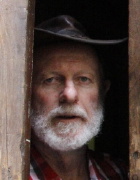Roger Clarke's Web-Site
© Xamax Consultancy Pty Ltd, 1995-2024

Infrastructure
& Privacy
Matilda
Roger Clarke's Web-Site© Xamax Consultancy Pty Ltd, 1995-2024 |

|
|||||
| HOME | eBusiness |
Information Infrastructure |
Dataveillance & Privacy |
Identity Matters | Other Topics | |
| What's New |
Waltzing Matilda | Advanced Site-Search | ||||
Notes of 26 July 2017
Roger Clarke and Graham Greenleaf **
© Xamax Consultancy Pty Ltd, 2017
Available under an AEShareNet ![]() licence or a Creative
Commons
licence or a Creative
Commons  licence.
licence.
This document is at http://www.rogerclarke.com/DV/APF30.html
The accompanying slide-set is at http://www.rogerclarke.com/DV/APF30.pdf
The Australian Privacy Foundation was formed in mid-1987, in a last-ditch endeavour to defeat the Australia Card. 30 years later, it is the world's longest-lived national privacy organisation.
Although an entirely volunteer organisation, it has contributed to and influenced public policy discussions on a vast array of topics. The chronological index of papers, (which is complete only for the second half of APF's life, since 2002) lists about 700 documents.
These notes were designed to provide some accompaniment to the slide-set presented at the 30th anniversary event, held at UNSW on 28 July 2017.
The presentation commences with an outline of some pre-history (slide 2), followed by a recapitulation of the Australia Card Campaign in the 3rd quarter of 1987 (slides 3-19). The presenters felt that this warranted longer treatment than the long haul of 30 years of advocacy, because of its excitement, high visibility at the time, nationwide impact, and ongoing relevance.
Further slides identify a couple of other early and successful campaigns (slides 20-21), and provide an indication of the diversity of topics that have had to be addressed (slide 22).
For the first 15 years, despite its flurries of activity and the well-known names associated with it, the organisation remained informal. Time was finally found to incorporate it in 2002, by which time a web-site was emergent. The web-site design of 2004-17 supported a progressively expanding amount of content. Its upgrade has been timed to coincide with the event (slide 23).
APF co-founder Simon Davies subsequently returned to the UK, where he established Privacy International in 1990. One of PI's successful initiatives was the international Big Brother Awards scheme (the BBAs). Since 1998, c. 150 awards ceremonies have been conducted in c. 20 countries, including 6 BBAs in Australia (slide 24).
A campaign particularly worth highlighting is the successful fight against the Access Card (2006-07 - slide 25). At around that time, Canadian political scientist Colin Bennett was conducting research for his book on 'The Privacy Advocates'. He identified the APF as a leader in the field (slide 26). As something of a counter-balance against the unremitting positiveness of the slide-set, a few of the challenges that APF has faced are also outlined (slide 27). In 2009, in order to help project its community standing, APF gained the support of Patrons and an Advisory Panel, comprising A-listers and key contributors to the cause of privacy (slide 28).
During the last decade, the APF has endeavoured to get out ahead of many issues by proactively determining and publishing policies in about 40 areas. Apart from 'taking the high ground', this enables shorter submissions to be prepared, with the relevant Policy Statement attached (slide 29).
During the APF's second and third decades, the focus was on carefully researched and presented arguments. This is subject to the criticism that the high points scored for outputs wasn't matched by outcomes. The period was marked by a very substantial decline in the quality of public policy deliberations in Australia generally, such as the collapse of Senate Committee processes to the point that submissions and the provision of verbal evidence are essentially a waste of resources. The current Board has indicated a preference for a more activist stance (slide 30).
The presentation finishes with a nod to the many people who have contributed to APF over the first 30 years - c. 60 Board members, including the current 14 Board members - a further c. 20 in other officer roles, plus members of Committees (slide 31).
Roger Clarke is Principal of Xamax Consultancy Pty Ltd, Canberra. He is also a Visiting Professor in Cyberspace Law & Policy at the University of N.S.W., and a Visiting Professor in the Computer Science at the Australian National University.
Graham Greenleaf is a research Professor of Law & Information Systems in UNSW Law. He specialises in the relationships between information technology and law, and research in the areas of cyberspace law, data protection and privacy, legal information systems and intellectual property.
Roger and Graham were foundation Board members of the Australian Privacy Foundation, and are the only two to have served continuously during its first 30 years.
| Personalia |
Photographs Presentations Videos |
Access Statistics |
 |
The content and infrastructure for these community service pages are provided by Roger Clarke through his consultancy company, Xamax. From the site's beginnings in August 1994 until February 2009, the infrastructure was provided by the Australian National University. During that time, the site accumulated close to 30 million hits. It passed 65 million in early 2021. Sponsored by the Gallery, Bunhybee Grasslands, the extended Clarke Family, Knights of the Spatchcock and their drummer |
Xamax Consultancy Pty Ltd ACN: 002 360 456 78 Sidaway St, Chapman ACT 2611 AUSTRALIA Tel: +61 2 6288 6916 |
Created: 25 July 2017 - Last Amended: 26 July 2017 by Roger Clarke - Site Last Verified: 15 February 2009
This document is at www.rogerclarke.com/DV/APF30.html
Mail to Webmaster - © Xamax Consultancy Pty Ltd, 1995-2022 - Privacy Policy